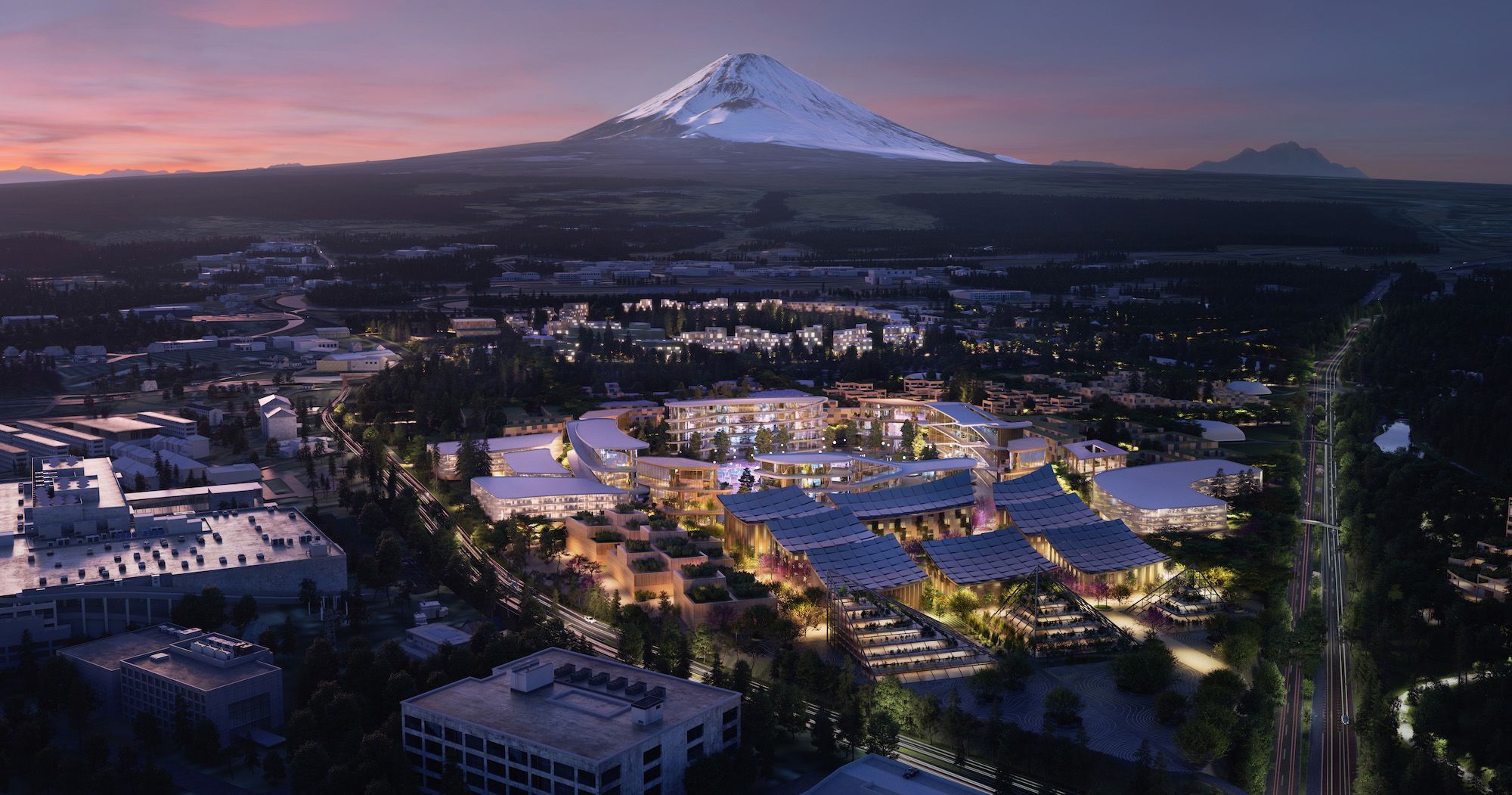Carmaker Toyota has unveiled plans for a 2,000-person “city of the future,” where it will test autonomous vehicles, smart technology and robot-assisted living.
The ambitious project, dubbed Woven City, is set to break ground next year in the foothills of Japan’s Mount Fuji, about 60 miles from Tokyo.
Announcing the project at the Consumer Electronics Show (CES) in Las Vegas, Toyota’s CEO Akio Toyoda described the new city as a “living laboratory” that will allow researchers, scientists and engineers to test emerging technology in a “real-life environment.”
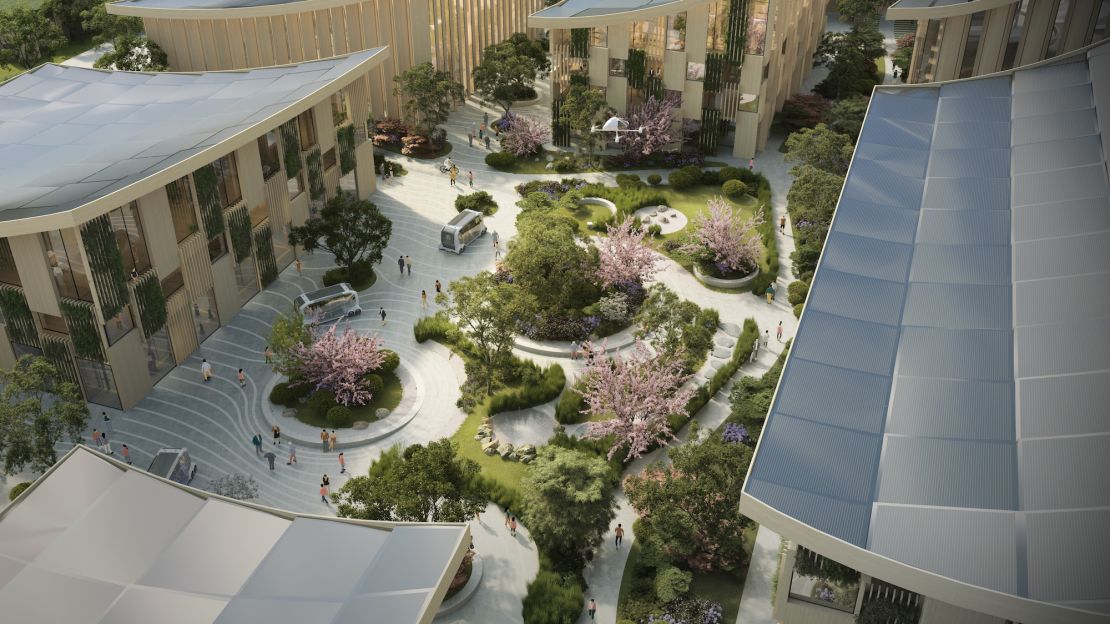
“With people buildings and vehicles all connected and communicating with each other through data and sensors, we will be able to test AI technology, in both the virtual and the physical world, maximizing its potential,” he said on stage during Tuesday’s unveiling. “We want to turn artificial intelligence into intelligence amplified.”
The new development will be set across a 175-acre site that was previously home to a Toyota factory. Describing the city as “fully sustainable,” the company said the project will be powered by hydrogen fuel cells and rooftop solar panels.
Only fully autonomous and zero-emission cars will be permitted to operate on its streets. A fleet of self-driving vehicles known as Toyota e-Palettes will be used for delivery and retail purposes.
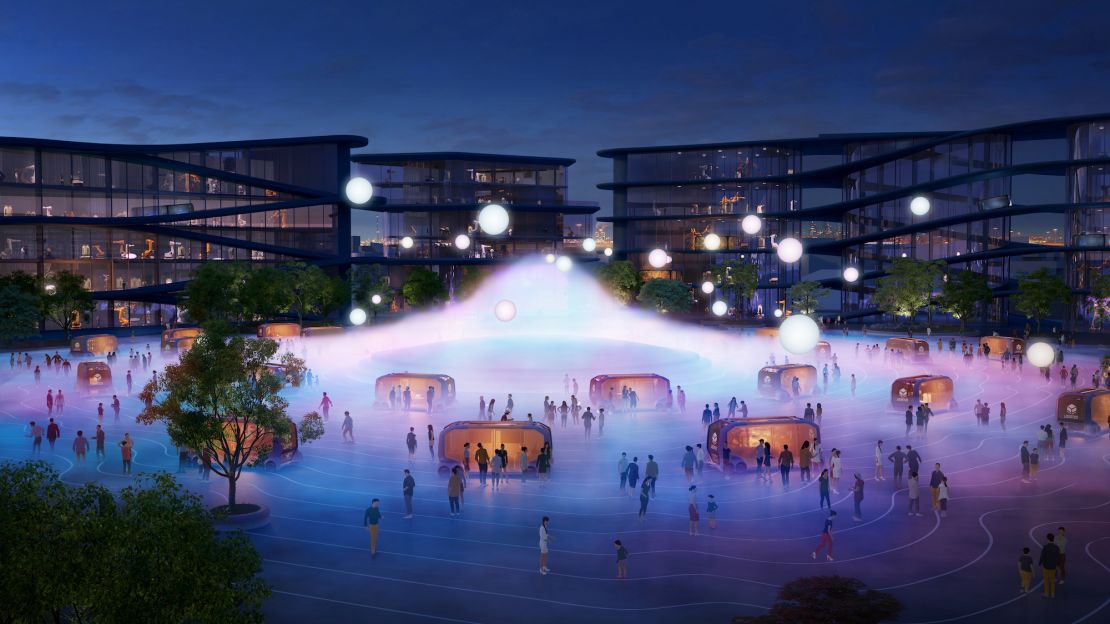
Upon opening, Woven City is expected to be home to some 2,000 people. The first residents will be the firm’s employees and their families, as well as retirees, retailers, researchers and other project partners, Toyota said.
The project is a collaboration between the Japanese carmaker and Danish architecture firm Bjarke Ingels Group (BIG), which designed the city’s master plan. Buildings on the site will be made primarily from wood, and partly constructed using robotics. But the designs also look to Japan’s past for inspiration, incorporating traditional joinery techniques and the sweeping roofs characteristic of the country’s architecture.
Smart technology will extend inside residents’ homes, according to Ingels, whose firm also designed the 2 World Trade Center in New York, and Google’s headquarters in both London and Silicon Valley.
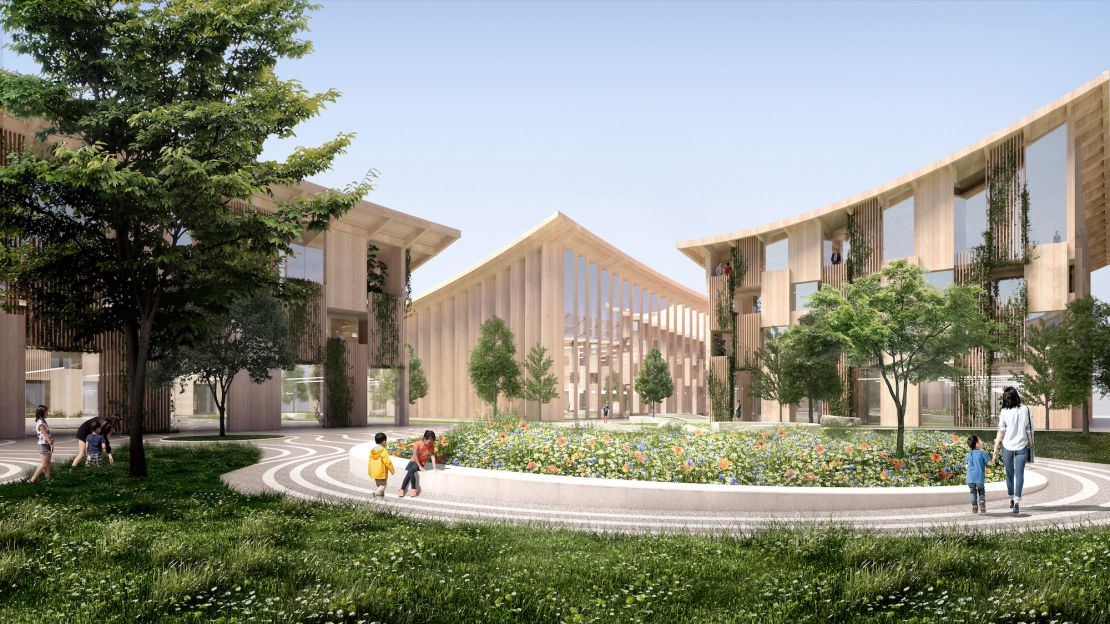
“Homes in the Woven City will serve as test sites for new technology, such as in-home robotics to assist with daily life,” the architect said, joining Toyota’s CEO on stage at CES to introduce the city’s masterplan. “These smart homes will take advantage of full connectivity using sensor-based AI to do things automatically, like restocking your fridge, or taking out your trash – or even taking care of how healthy you are.”
Power storage and water filtration facilities will be hidden beneath the ground. Above ground, meanwhile, BIG’s master plan features a plaza, parks and car-free promenades, with Ingels stressing the importance of public spaces in his design.
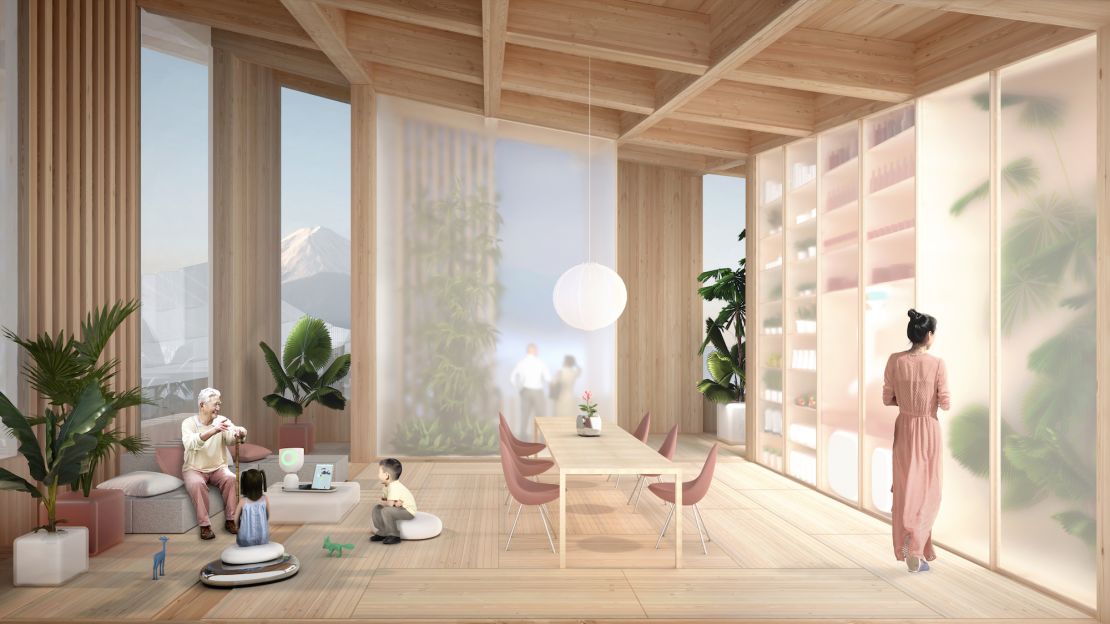
“In an age when technology, social media and online retail is replacing and eliminating our natural meeting places, the Woven City will explore ways to stimulate human interaction in the urban space,” he said. “After all, human connectivity is the kind of connectivity that triggers wellbeing and happiness, productivity and innovation.”
Construction on the first phase of the project, which BIG said will consist of more than a dozen structures, is set to begin in 2021. No date was given for its estimated completion.
